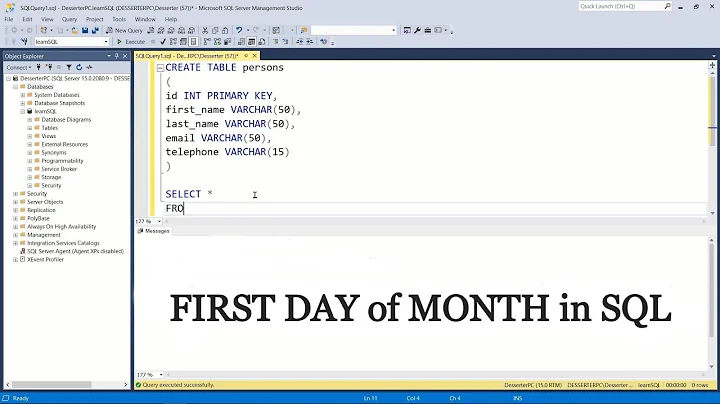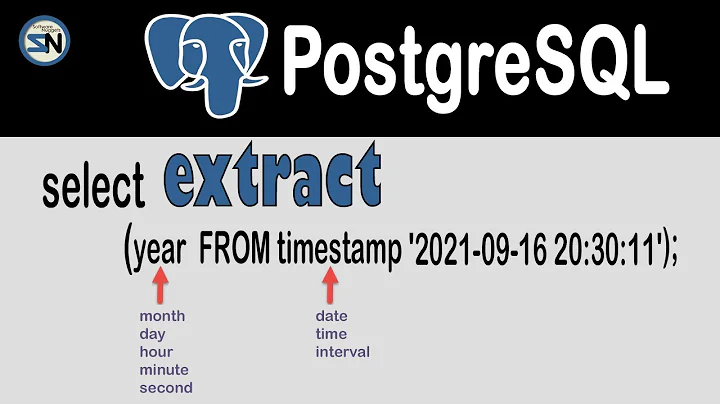SQL: Subtracting 1 day from a timestamp date
Solution 1
Use the INTERVAL type to it. E.g:
--yesterday
SELECT NOW() - INTERVAL '1 DAY';
--Unrelated: PostgreSQL also supports some interesting shortcuts:
SELECT
'yesterday'::TIMESTAMP,
'tomorrow'::TIMESTAMP,
'allballs'::TIME AS aka_midnight;
You can do the following then:
SELECT
org_id,
count(accounts) AS COUNT,
((date_at) - INTERVAL '1 DAY') AS dateat
FROM
sourcetable
WHERE
date_at <= now() - INTERVAL '130 DAYS'
GROUP BY
org_id,
dateat;
TIPS
Tip 1
You can append multiple operands. E.g.: how to get last day of current month?
SELECT date_trunc('MONTH', CURRENT_DATE) + INTERVAL '1 MONTH - 1 DAY';
Tip 2
You can also create an interval using make_interval function, useful when you need to create it at runtime (not using literals):
SELECT make_interval(days => 10 + 2);
SELECT make_interval(days => 1, hours => 2);
SELECT make_interval(0, 1, 0, 5, 0, 0, 0.0);
More info:
Date/Time Functions and Operators
datatype-datetime (Especial values).
Solution 2
You can cast a TIMESTAMP to a DATE, which allows you to subtract an INTEGER from it.
For instance, to get yesterday:
now()::DATE - 1
So your query will become:
SELECT org_id, date_at::DATE - 1 AS dateat, COUNT(accounts) AS count
FROM sourcetable
WHERE date_at <= NOW()::DATE - 130
GROUP BY 1, 2
Related videos on Youtube
J-Ko
Updated on July 28, 2022Comments
-
J-Ko almost 2 years
I am using Datagrip for Postgresql. I have a table with a date field in timestamp format
(ex: 2016-11-01 00:00:00). I want to be able to:- apply a mathematical operator to subtract 1 day
- filter it based on a time window of today-130 days
- display it without the hh/mm/ss part of the stamp (2016-10-31)
Current starting query:
select org_id, count(accounts) as count, ((date_at) - 1) as dateat from sourcetable where date_at <= now() - 130 group by org_id, dateatThe
((date_at)-1)clause on line 1 results in:[42883] ERROR: operator does not exist: timestamp without time zone - integer Hint: No operator matches the given name and argument type(s). You might need to add explicit type casts. Position: 69
The
now()clause spawns a similar message:[42883] ERROR: operator does not exist: timestamp with time zone - integer Hint: No operator matches the given name and argument type(s). You might need to add explicit type casts. Position: ...
Online guides to type casts are singularly unhelpful. Input is appreciated.
-
 wim over 3 yearsFor those who were wondering, "allballs" is a literal for midnight, because it looks like 00:00:00.
wim over 3 yearsFor those who were wondering, "allballs" is a literal for midnight, because it looks like 00:00:00. -
vikasing over 2 yearsAnother tip: If you have stored the days in a db column (lets say num_of_days), you can use
SELECT NOW() - INTERVAL '1 DAY' * num_of_days;













